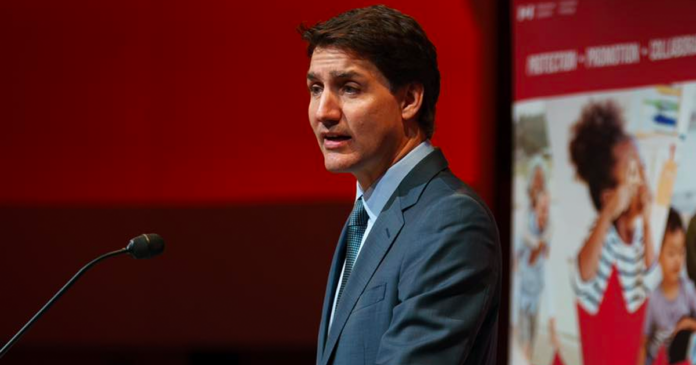Our prime minister, presently on a P.E.I. retreat with his cabinet, held a press conference on Monday in which he said the topic du jour would be the national housing dilemma.
Then, he rattled off all the things the Liberals had supposedly done since their 2015 election to ease the path towards home ownership and housing in general.
All fell flat.
The average Canadian, with home ownership out of reach and suitable rentals becoming equally unaffordable, was dumbstruck by Trudeau’s ability to find some optimism in the pool of negativity.
But the public was then provided a subject to throw them down a different path.
He talked about his blown marriage.
“I really, really want to thank Canadians for having been so incredibly gracious and incredibly generous in respecting our privacy and our space,” Trudeau said during the media availability in P.E.I. It was his first public statement on the separation since it was announced.
“I got a really good 10 days with the family to focus on the kids, to focus on being together and moving forward.”
Trudeau and Sophie Grégoire announced their separation in statements posted to social media on August 2. They have been married for 18 years, and have three children: two sons, Xavier, 15, and Hadrien, 9, and one daughter, 14-year-old Ella-Grace.
“I want to thank all the people who’ve reached out over the past number of weeks with warm wishes, with personal messages, with personal stories that have been just wonderful and positive,” Trudeau added.
Housing? On a later day perhaps, because it was already proclaimed the retreat’s raison d’etre.
Until then? Cue the maudlin.
In the meantime, Trudeau is set to huddle with his new cabinet on how to address the soaring cost of living, and a growing vulnerability for his government as more Canadians blame it for their rising bills.
After all, there is an election at stake, and no one in the Liberal Party is rolling in accolades.
Pressure is mounting, according to a Nanos Research poll for Bloomberg News. Three in 10 Canadians blame government spending over other factors for the rise in consumer prices. Another 22% blame businesses for increasing their prices, while 10% point the finger at the Bank of Canada, which has raised interest rates 20 consecutive times to a 20-year-high of 5%.
“For the average person, it is like an inflationary spiral one cannot escape,” pollster Nik Nanos said by email. “Government spending increases inflation, the Bank of Canada increases rates and businesses then increase prices to cover rising inputs into goods and services.”
While headline inflation was 3.3% in July, food prices were up 7.8% and the central bank’s aggressive hikes mean mortgage interest costs have spiked 30.6%. Record levels of immigration have exacerbated a housing supply shortage, helping boost the benchmark home price to $754,800.
Meanwhile, federal spending is still above pre-pandemic levels, with the government projecting a $40.1-billion deficit this year.
Trudeau, in the leadup to his cabinet retreat, has begun to send a message of belt-tightening. Treasury Board President Anita Anand, the former defence minister, recently sent a letter to cabinet colleagues giving them an October deadline to find areas to cut $14.1 billion in spending by 2028 and $4.1 billion in the years that follow.
So, every cabinet minister will have to make out a list.
It’s a list that should be made public — hopefully without any cuts to housing or the accompanying infrastructure.





















